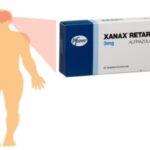What Does It Feel Like When Antidepressants Kick In?

Antidepressants are medications that inhibit the reuptake of specific neurotransmitters in order to correct chemical imbalances of neurotransmitters in the brain that are believed to be responsible for changes in mood and behavior. This activity can help relieve symptoms of depression, social anxiety disorder, anxiety disorders, seasonal affective disorder, and dysthymia, or mild chronic depression, as well as other conditions.
Antidepressants were first developed in the 1950s. Their use has become progressively more common in the last 20 years. According to the Centers for Disease Control and Prevention (CDC), the percentage of people aged 12 years and over using antidepressants in the United States rose from 7.7 percent in 1999-2002 to 12.7 percent in 2011-2014. Around twice as many females use antidepressants as males.
Many common drugs for depression fall into the following drug classes:
• selective serotonin reuptake inhibitors (SSRIs)
• serotonin-norepinephrine reuptake inhibitors (SNRIs)
• tricyclic antidepressants (TCAs)
• tetracyclic antidepressants
• dopamine reuptake blockers
• 5-HT1A receptor antagonists
• 5-HT2 receptor antagonists
• 5-HT3 receptor antagonists
• monoamine oxidase inhibitors (MAOIs)
• noradrenergic antagonists
Atypical antidepressants, which don’t fall into these drug classes, and natural supplements, such as St. John’s wort, are also available.
For what conditions are antidepressants used?
Antidepressants are used to treat several conditions. They include but are not limited to: depression, generalized anxiety disorder, agitation, obsessive-compulsive disorders (OCD), manic-depressive disorders, childhood enuresis (bedwetting), major depressive disorder, diabetic peripheral neuropathic pain, neuropathic pain, social anxiety disorder, posttraumatic stress disorder (PTSD), etc.
Some off-label uses of antidepressants include, but are not limited to fibromyalgia, chronic urticaria (hives), hot flashes, hyperhidrosis (drug-induced), pruritus (itching), premenstrual symptoms, bulimia nervosa, Tourette syndrome, binge eating disorder, etc.
Are there differences among antidepressants?
Antidepressants differ in their effects on neurotransmitters, established uses, adverse effects, and drug interactions. All antidepressants that are used for depression are effective; there is no evidence that one antidepressant is more effective than another. However, patients may respond to or tolerate one antidepressant, and not respond to or tolerate another antidepressant.
How long does it take for antidepressants to work?
People’s experiences with antidepressants vary. It usually takes several weeks before people begin to feel any benefit. Many we interviewed began to experience some benefits after about 4 -6 weeks; some felt they worked much sooner, some said it took up to 8 weeks to feel any benefit, and others felt no benefits or had to try several before they found one that worked. During the first few weeks’ people commonly experience some side effects or feel worse before they begin to feel better. Although the newer Selective serotonin reuptake inhibitors (SSRIs) usually have fewer or less severe side effects than tricyclic antidepressants, various side effects can occur with them all. The doctor will typically prescribe a low dose at the start and this can help to reduce the risk or intensity of side effects. It may take a while to find the right dose. Some people may need to try several different antidepressants before they find one that suits them.
What Does It Feel Like When Antidepressants Kick In?
When the effect of antidepressant kicks in, you should immediately begin to feel or experience the following:
- Ability to think more clearly
- Improve mood and motivation
- Improve self-esteem
- Increase appetite and concentration
- Reduce restlessness and promote better sleep
Antidepressants, in general, are effective for moderate to severe depression. Many people do get some relief from depression symptoms by taking antidepressants.
A number of recent analyses have looked more deeply into whether antidepressants work, and these studies support their effectiveness.
A 2018 review of trials measuring the effectiveness of 21 antidepressant medications found each of these medications works better than a placebo. The review analyzed 522 studies done between 1979 and 2016, involving a total of 116,477 people.
A 2019 paper reviewed previous studies from 1990 to June 2019 on antidepressant effectiveness. The authors noted all reviews generally showed that antidepressants were effective, but only marginally effective. They concluded antidepressant benefits are minimal and increase the risk of harmful effects. However, the paper stated that additional research is needed to confirm or dispute that there is an increased risk of harmful effects.
A 2020 data analysis also looked at previously published data on antidepressant efficacy. This study came to less optimistic conclusions about how effective antidepressants are.
The study looked at whether previous analyses underestimated the effectiveness of antidepressants, due to the use of the Hamilton Depression Rating Scale (HDRS). With the use of an alternative measurement, the Montgomery-Asberg Depression Rating Scale (MADRS), the researchers found the previous studies did not underestimate effectiveness. The study hypothesized that antidepressants may not in fact work well for the average person.
Researchers have also looked at the effectiveness of antidepressants on subgroups of people, such as older adults, children, and adolescents.
A 2020 review of studies involving people over the age of 65 found on average 50.7 percent of people achieved at least a 50 percent reduction in depression, based on the HDRS. This analysis looked at 44 studies with a total of 6,373 people.
A 2020 meta-analysis of previous reviews looked at the effectiveness and tolerability of antidepressants in those under the age of 18. These medications are prescribed to children and adolescents for a variety of reasons. With respect to major depressive disorder, the meta-analysis found only fluoxetine (Prozac) worked better than the placebo. The review included 34 random controlled trials involving 14 antidepressants prescribed for major depressive disorder in people under the age of 18.
How to find the right antidepressant
Just as not every therapist matches with every person, not every antidepressant will work for everyone who tries it. You might try one antidepressant and not feel better after a few months, and then switch to another similar antidepressant that works for you.
Doctors also have a tool called GeneSight, in which they take DNA by cheek swab that is analyzed to determine which medication will be most effective based on the person’s metabolism and susceptibility to side effects. There are a number of antidepressants available that work in slightly different ways and have different side effects. When prescribing an antidepressant that’s likely to work well for you, your doctor may consider:
- Your particular symptoms. Symptoms of depression can vary, and one antidepressant may relieve certain symptoms better than another. For example, if you have trouble sleeping, an antidepressant that’s slightly sedating may be a good option.
- Possible side effects. Side effects of antidepressants vary from one medication to another and from person to person. Bothersome side effects, such as dry mouth, weight gain or sexual side effects, can make it difficult to stick with treatment. Discuss possible major side effects with your doctor or pharmacist.
- Whether it worked for a close relative. How a medication worked for a first-degree relative, such as a parent or sibling, can indicate how well it might work for you. Also, if an antidepressant has been effective for your depression in the past, it may work well again.
- Interaction with other medications. Some antidepressants can cause dangerous reactions when taken with other medications.
- Pregnancy or breast-feeding. A decision to use antidepressants during pregnancy and breast-feeding is based on the balance between risks and benefits. Overall, the risk of birth defects and other problems for babies of mothers who take antidepressants during pregnancy is low. Still, certain antidepressants, such as paroxetine (Paxil, Pexeva), may be discouraged during pregnancy. Work with your doctor to find the best way to manage your depression when you’re expecting or planning on becoming pregnant.
- Other health conditions. Some antidepressants may cause problems if you have certain mental or physical health conditions. On the other hand, certain antidepressants may help treat other physical or mental health conditions along with depression. For example, venlafaxine (Effexor XR) may relieve symptoms of anxiety disorders and bupropion may help you stop smoking. Other examples include using duloxetine (Cymbalta) to help with pain symptoms or fibromyalgia, or using amitriptyline to prevent migraines.
- Cost and health insurance coverage. Some antidepressants can be expensive, so it’s important to ask if there’s a generic version available and discuss its effectiveness. Also find out whether your health insurance covers antidepressants and if there are any limitations on which ones are covered.





